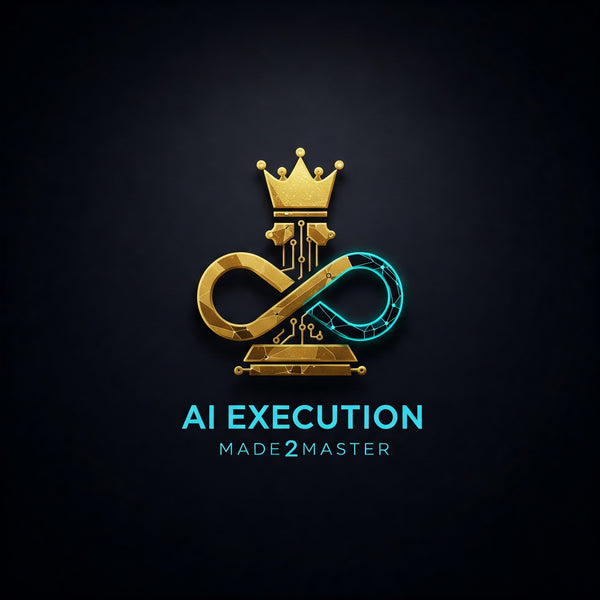1) Biography: The Architect of a Centered Lens
Molefi Kete Asante (born Arthur Lee Smith Jr., Valdosta, Georgia, 1942) emerged as the principal theorist of Afrocentricity, founding the Journal of Black Studies and establishing the first PhD in African American Studies at Temple University. His corpus — Afrocentricity: The Theory of Social Change and The Afrocentric Idea — repositions African peoples as subjects of history and knowledge.
2) Afrocentricity Defined: A Worldview and a Method
Afrocentricity positions Africa—its people, cultures, and epistemologies—as the center of analysis for phenomena involving African people. It restores subject-hood, location, wholeness, and humanism.
- Subject-hood: Africans as agents who generate meaning.
- Location: Standpoint, language, and lived reality as the baseline.
- Wholeness: History, spirituality, aesthetics, science, and ethics integrated.
- Humanism: Centering Africa improves accuracy for the whole world.
3) Historical Narrative: When the Center Moves, History Changes
Afrocentricity restores sequence and salience to African civilizations and diasporas, replacing “discovery” myths with exchange narratives and mapping the Black Atlantic as a crucible of modernity.
- Teach Nile Valley, West African polities, and diaspora innovations as world-making lineages.
- Use encounter/exchange framing; retire Eurocentric “discovery.”
- Link archives to present-day policy, product, and design.
4) Education: Curriculum as Sovereignty Engineering
Schools install worldviews. An Afrocentric core becomes baseline—connecting ancient knowledge to STEM, elevating African languages/aesthetics, and measuring identity affirmation and community praxis alongside grades.
5) Cultural Sovereignty: Guarding the Signal
Cultural sovereignty = the right and capacity to originate, name, distribute, and benefit from cultural production. Treat culture as infrastructure: language, rights, distribution, ritual/ethics.
- Language Sovereignty (African-language content & search)
- Rights & Revenue (IP, licensing, cooperatives)
- Distribution Control (owned platforms)
- Ritual & Ethics (reciprocity encoded in contracts)
6) Branding: Narrative Power as Economic Strategy
Brands are story operating systems. An Afrocentric brand centers African agency at research, naming, design, product truth, distribution, and equity.
- Center check · Who names value?
- Origin protocol · Real languages, real histories.
- Design ethos · Living traditions, no caricature.
- Product truth · Solves community-defined problems.
- Revenue ethics · Shared upside with culture bearers.
- Community council · Advisory circle with real power.
- Supply chain · African suppliers prioritized.
- Data dignity · Privacy, consent, benefit-sharing.
- Media plan · Own channels first.
- Talent pipeline · Apprenticeships for African youth.
- Measurement · Trust, accuracy, local impact.
- Longevity · Five-generation plan.
7) Pan-African Synergy: Diaspora × Continent = Compound Power
Operate as a coordinated network: knowledge, capital, policy, talent, story. Build Lagos–Accra–Nairobi–Jo’burg ↔ London–Paris–Toronto–NY–Bahia loops.
8) AI Application: Decolonizing the Dataset, Centering the Model
Relocate the center at data, labels, loss, and interface layers. Build an Afrocentric corpus, language coverage, knowledge graph, harm audits, localized labeling, objective-function tweaks, and transparent model cards.
9) Sovereignty Mindset: From Identity to Infrastructure
- Visibility → Veto
- Inclusion → Initiation
- Representation → Remuneration
- Grant cycles → Cashflow cycles
10) Execution Manual: 30-60-90 for Afrocentric Build-Out
Days 0–30 · Audit & Center
- Run the 12-point brand audit.
- Constitute an Advisory Council with veto power.
- Map primary African sources for your field.
- Draft a Data Dignity Policy.
Days 31–60 · Build & Prototype
- Ship a minimum viable archive (10–50 curated items).
- Prototype one Afrocentric AI feature.
- Publish a Model Card (datasets, validators, harm checks).
- Launch a Council stipend structure.
Days 61–90 · Operate & Scale
- Formalize governance; quarterly reviews.
- Activate two Pan-African loops.
- Release an open evaluation set with baselines.
- Publish royalty/licensing policy for cultural assets.
Made2Master Power Prompts
Prompt: “Act as an Afrocentric brand auditor. Evaluate my brand across subject-hood, origin protocol, design ethos, product truth, revenue ethics, community council, supply chain, data dignity, media plan, talent pipeline, measurement, and longevity. Produce a scored report (0–100) with fixes, partners, and a 30-day action plan.”
Prompt: “You are an Afrocentric AI evaluator. Given [model/docs], identify dataset gaps, stereotype risks, language blind spots, and missing knowledge-graph edges relevant to African contexts. Recommend corpus additions, validators, and objective-function tweaks with an implementation checklist.”
Ongoing execution insights + prompts inside our Telegram hub.
Afrocentric Execution Framework
A compact operating system to turn Afrocentric clarity into platforms and policy.
1) Locate
- Center Statement for your domain.
- Subject Map of African agents and institutions.
- Language Policy for interfaces, docs, and search.
2) Source
- Primary Corpus with provenance.
- Validators (scholars, elders, practitioners).
- Consent & Benefit (rights, royalties, revenue share).
3) Encode
- Knowledge Graph aligned to people–place–period–practice.
- Design System grounded in living traditions.
- Ritual Protocols for operations.
4) Build
- Product solves community-defined problems (ship MVP in 60 days).
- AI coverage + model cards + evaluations.
- Governance with Council veto and public notes.
5) Distribute
- Owned Channels first.
- Pan-African Loops (knowledge/capital/policy/talent/story).
- Measurement (accuracy, dignity, income, trust).
6) Sustain
- Revenue Mix (subs, licensing, co-ops, education).
- Successor Design (apprentices → leaders).
- Annual Re-centering audits.



























